My First Visit to Principles First
The annual conservative summit did not disappoint.
You may have gathered through my writing that I’m not just a purveyor of news-commentary. I’m also an avid consumer. I’m quite interested in — some might say addicted to — what smart, honest, principled thinkers have to say on a variety of important topics. Sadly, on the political right (where I reside), there aren’t nearly as many of those folks as there used to be.
The reason, as I’ve lamented a number of times over the years, goes back to the 2016 election cycle. That’s when many conservative commentators watched in horror as their audiences (and the broader Republican base) began to fall under the spell of Donald Trump. Long-preached conservative principles and moral standards were traded en masse for a personality cult, and the media-conservatives who didn’t follow the movement on bended knee found their viewership, listenership, and readership in steep, potentially career-ending decline.
The message was clear: those who fell in line with the MAGA-fication of the Republican Party would be spared. Those who continued to call things straight would risk professional ruin.
Most chose the former, and have indeed enjoyed the career benefits of selling out for the man who went on to become our 45th president. In fact, it turned out that one can make a surprisingly good living, even with very limited talent, kissing Trump’s rump and stoking populist outrage.
Conversely, those who stuck to their guns (and principles) have fought an uphill battle, compounded by relentless attacks from MAGA faithfuls and anti-anti-Trumpers (including former colleagues), to hold and grow an audience — mostly of fellow conservative dissidents who long for the GOP they remember under our 40th president, Ronald Reagan.
What both sides would agree on is that Reagan Republicanism is dead (or at least dormant). For now and the foreseeable future, it’s Donald Trump’s GOP. Even Republican office-holders who secretly despise Trump, and hate what he’s done to the party, sing his praises in public, offer him their endorsements, vote how he wants them to, and attack those he wants attacked. Because if they veer off script, they’ll likely find themselves primaried in the next election.
Who I admire are the holdouts — the relatively small group of principled conservatives in politics and the political media who didn’t let the MAGA era break or ruin them. I pay attention to what those individuals say, I cite and subscribe to their work, and I’m fortunate to have even gotten to know a number of them personally. So, when there’s an opportunity to meet some of that crowd, I try to take advantage of it. That’s what got me interested in this year’s Principles First Summit.
The annual grassroots event in Washington DC, founded by conservative lawyer Heath Mayo, was originally set up as counter-programming to Matt Schlapp’s increasingly unhinged CPAC (scheduled on the same weekend, and in the same town). The focus of the summit was advertised as “advancing a more principled center-right politics in the United States”.
The early line-up for the event included a number of political and media figures I enjoy and appreciate, and as more and more speakers were announced, the gathering felt like something I didn’t want to pass up. The icing on the cake was that the ticket, for two full days of panels and speeches about the state and future of the conservative movement (organized entirely by volunteers), was only $45 (to cover basic operating expenses). I reserved my spot, and flew out to DC last Friday for the kickoff.
Boy was I glad I went. For me, even with the added cost of a flight and hotel stay, it was worth every penny (and then some).
Among the speakers were conservative historians, including Matthew Continetti, Francis Fukuyama, and Quin Hillyer. There were national security experts like Fiona Hill. There were the esteemed legal minds of Michael J. Luttig, Alberto Gonzales, and Barbara Comstock. There were economic experts, like Brian Riedl and Maya MacGuineas. There were former Republican leaders, including Asa Hutchinson and Adam Kinzinger. There were steadfast election officials, like Brad Raffensperger and Stephen Richer. There were even former members of the Trump administration who testified before the January 6 Committee, including Alyssa Farah Griffin, Cassidy Hutchinson, and Sarah Matthews. And, as I eluded to earlier, there was a number of my favorite political writers, including Jonah Goldberg, A.B. Stoddard, and Ramesh Ponnuru.
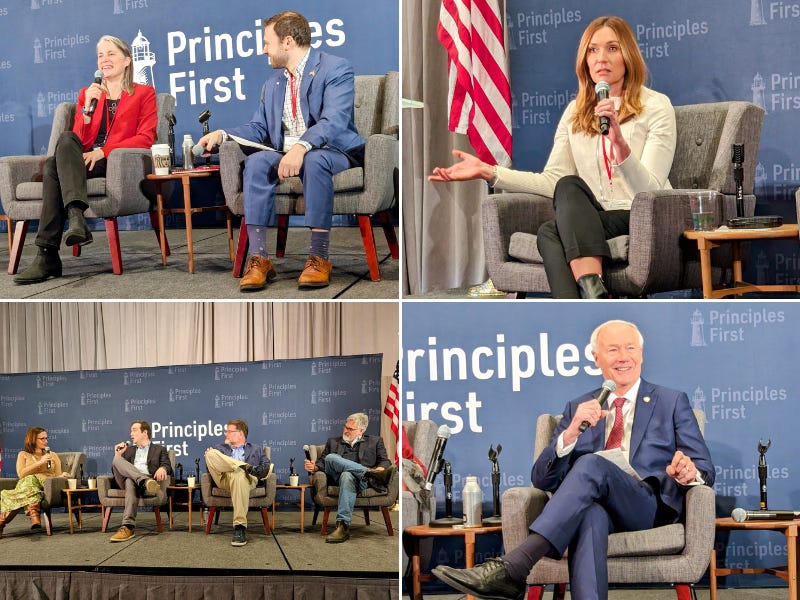
The conference was informative and revolved around serious issues, including the rule of law, moral courage and leadership, economics, duty to country, election integrity, democratic preservation, political tribalism, and American conservatism. Even some of the panels I wasn’t expecting a lot from turned out to be quite illuminating, and included some spirited debate. Speakers even offered up some sound solutions to the big challenges our country faces.
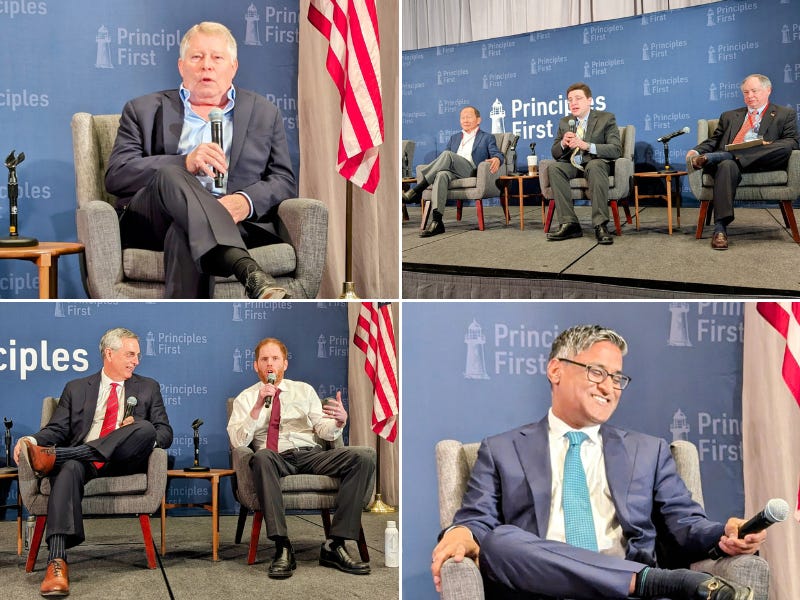
Of course, the current state of our politics and culture is what’s preventing a lot of such prescriptions from being filled, and that was an underlying theme of several of the discussions.
Some might conclude from seeing some of the people in the line-up that the Principles First Summit was a Trump bash-fest. There were indeed several obligatory potshots taken at the former president, but the focus on Trump was largely sober and substantive, even pragmatic. What was interesting was that those with the most impassioned and serious concerns about a second Trump term were individuals who actually worked in Trump’s administration, including close advisors.
While CPAC was making news over celebrations of the “end of democracy,” apocolyptic speeches, and actual Nazis in attendance, the Principles First Summit was composed, respectful, and at times pretty endearing.
And from what I understand, the event was even better attended than this year’s CPAC, which was quite a feat for a relatively new conference competing against a 50-year-old institution.
What I also enjoyed, I don’t mind saying, was the socializing. There was a reception, the night before the summit, at a local barbecue restaurant. I was looking forward to seeing my friend A.B. Stoddard there, who I’d coordinated with beforehand, but I hadn’t any idea who else I’d know… if anyone. As it turned out, there were actually quite a few acquaintances in attendance, not just fellow political writers like Jim Swift (of The Bulwark), Quin Hillyer (of the Washington Examiner), Robert George, and Sarah Quinlan, but several readers of my writing on this website and elsewhere. A number of them approached me and introduced themselves, and I’m thankful they did, because until I met them in the flesh, I had mostly associated our online exchanges (in some cases for years) with small profile-photos and faceless avatars.
I had an absolute blast that night. The atmosphere was casual and upbeat, and I made a number of other friends before the weekend was over — good, principled people who likewise feel politically homeless, but remain happy warriors interested in bringing positive change to both the conservative movement and the country.
All in all, it was a great experience — one I’d recommend to anyone who’s more interested in serious political discussion than tribal warfare and news entertainment. I’m already looking forward to next year’s summit.
Hats off to Heath Mayo and his hard-working team. They’ve really put together something special.



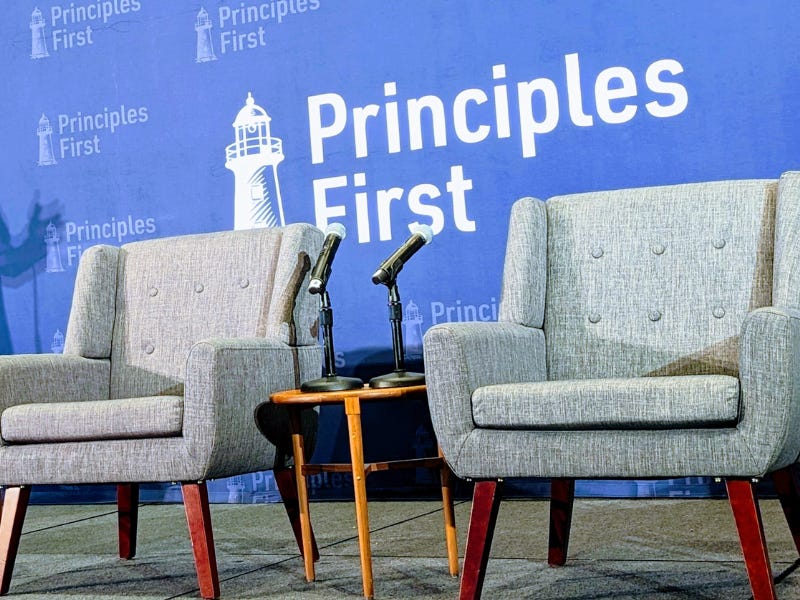
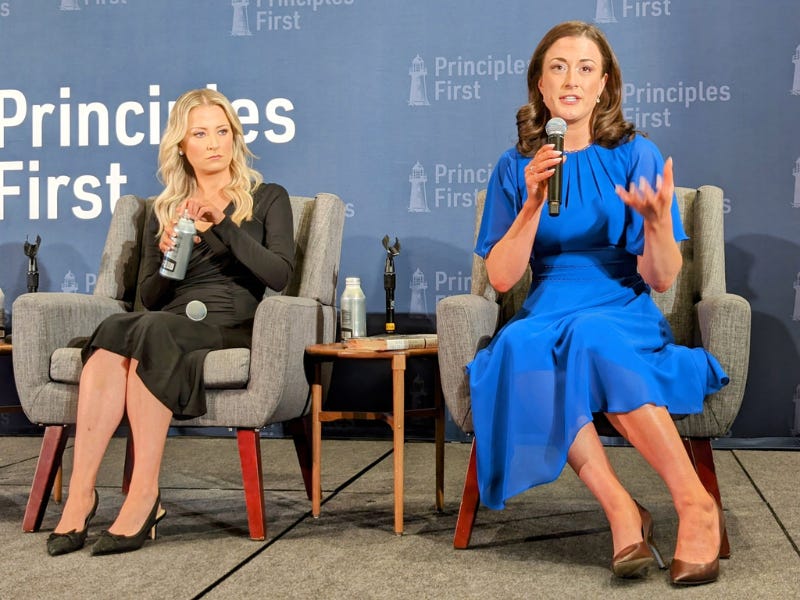
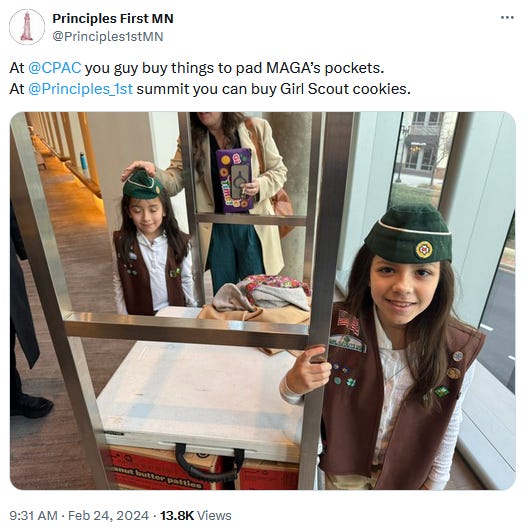
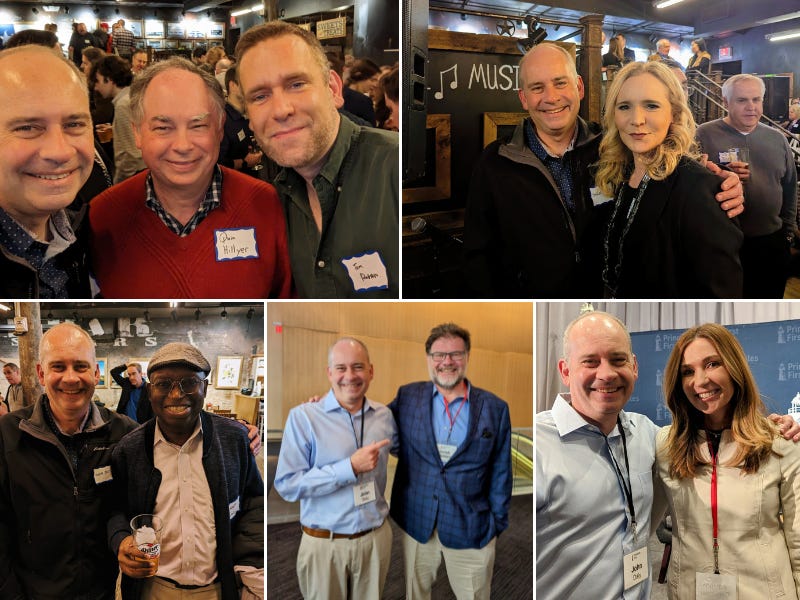
Thanks for the glimmer of hope, John. Truly.
John, I'm curious if there was any discussion about how we, the politically homeless, can reconcile with the Republican base that has gone MAGA? Trump didn't create the alt-right, but he did mainstream it and leverage it to take over the GOP, just as the far left woke-ists have taken over the Democrat Party. If we don't figure out a way to reach Trump supporters, at least the sane ones, the alt-right maga crowd will just continue the crazy train ride even after Trump eventually leaves the scene.